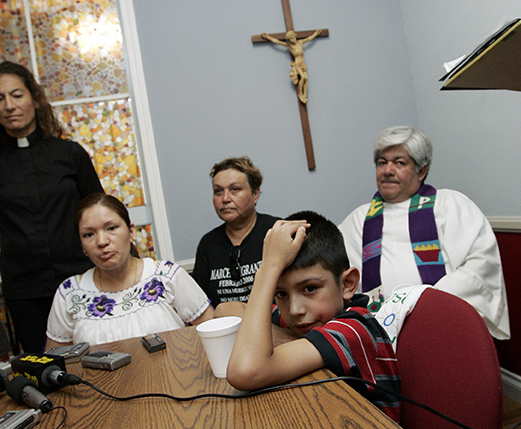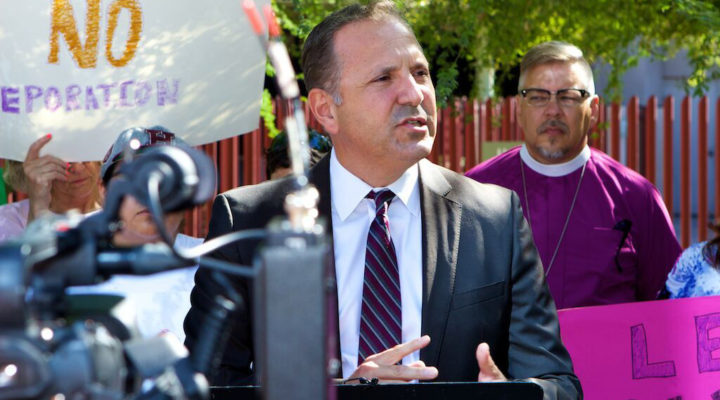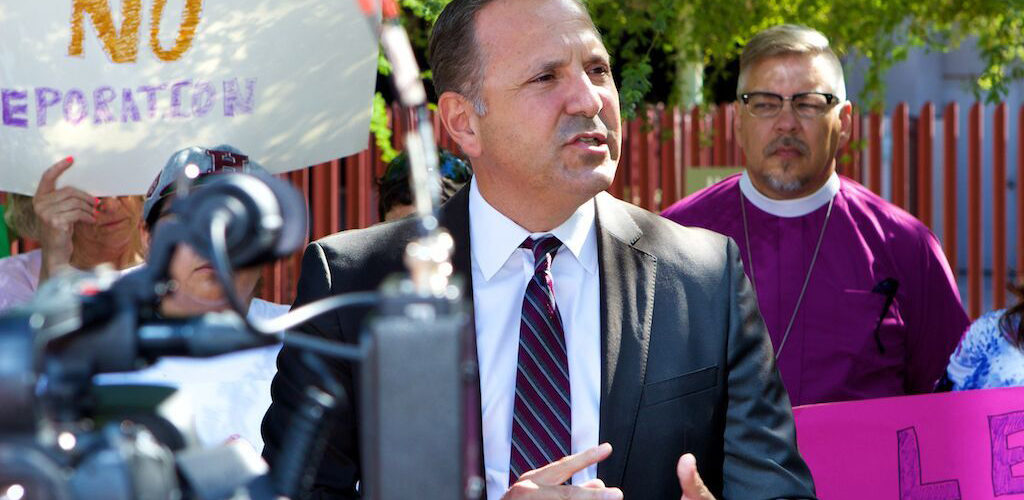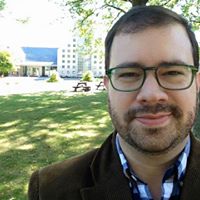In the mid-1980s, members and leaders of Old Cambridge Baptist Church risked fines and imprisonment to provide sanctuary to an El Salvadoran wanted by her government and U.S. immigration authorities.
Now, Pastor Cody Sanders says, a group of church members is studying how the Massachusetts congregation will live into its sanctuary identity in age of America of Donald Trump, who has vowed to deport the estimated 11 million immigrants living in the U.S.
The congregation also has been communicating with several other local churches about creating a sanctuary network, which Cody said is needed since those facing possible deportation live all around them.
“Trump’s policies come with the stigmatization of refugees and immigrants, which has resulted in violence against immigrants in their cities,” Sanders said.
“That’s another issue that churches must confront,” he said.
And they are rising up to do just that.
Action at a cost
National and media outlets are reporting a growing movement of congregations, churches and synagogues, which are providing refuge for immigrants facing immediate deportation.
More than a dozen churches in nine American cities have provided sanctuary to undocumented immigrants since 2014, Religion News Service reported. Citing Church World Service, RNS reported an estimated 400 additional congregations say they support such efforts.
Religious groups aren’t the only ones stepping up. RNS reported that the cities of New York, Chicago and Seattle are among several cities that have declared themselves sanctuaries for undocumented residents. The students, faculty and graduates of some leading universities, including Harvard and Yale, are pushing their schools to ignore possible executive orders affecting undocumented students.
And all of them – church, city and university alike — they very well may get the opportunity fulfill the sanctuary role in an America governed by a president who pledged to deport the estimated 11 million foreigners living in the United States without documentation.
If so, the action could come at a cost.
The Guardian reported that Trump has vowed to withhold federal funding from cities that provide sanctuary to undocumented immigrants.
How participating congregations might be impacted remains to be seen. But many are getting involved, nevertheless.
“There are waves of despair, anger and disbelief at Trump’s election and the rise of white supremacism,” Peter Pedemonti of the New Sanctuary Movement told The Guardian. “This is a very shocking part of US society that was in the shadows before, and with Trump it has come into the mainstream. It’s very disturbing.”
Pedemonti described a “pretty dramatic swell in congregations coming forward and asking questions about how to get involved. We’ve had a wave of people contacting us about sanctuary.”
The sanctuary movement is right in line with values of helping the stranger.

Elvira Arellano, left, an illegal immigrant from Mexico who has taken refuge in a Chicago church to avoid deportation, answers reporters’ questions as her 8-year-old son Saul sits at the table with others involved in the sanctuary movement at Nuestra Senora de Los Angeles church in Los Angeles. (AP Photo/Reed Saxon)
Sanctuary means collaboration
“The faith community has a specific role to stand up and speak out, and offering sanctuary is a bold way of doing that,” Pedemonti said.
The Guardian story noted that the sanctuary idea comes from the Book of Numbers, and that churches, synagogues and other houses of worship are labeled as “sensitive locations” where enforcement actions are generally avoided by federal authorities.
Sanders said he isn’t sure what kinds of penalties may be levied against religious groups that give sanctuary to immigrants.
“We’re pretty certain, going forward, that it will be pretty different than the ’80s,” he said.
Another difference will be the need for congregations to collaborate in their efforts, due to the sheer numbers of those who may be affected by Trump’s promise to deport all who are undocumented.
Sanders said forming those networks will likely be aided by expectations that even churches traditionally unaffiliated with the sanctuary movement will step up.
“That’s already happening and will continue to happen,” he said.



